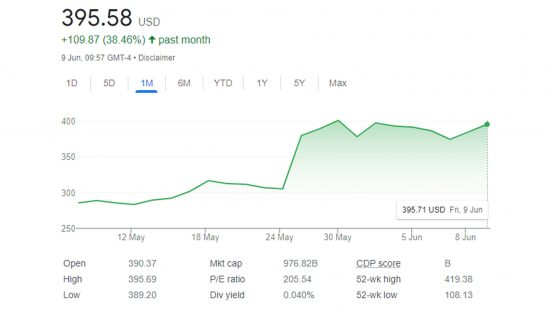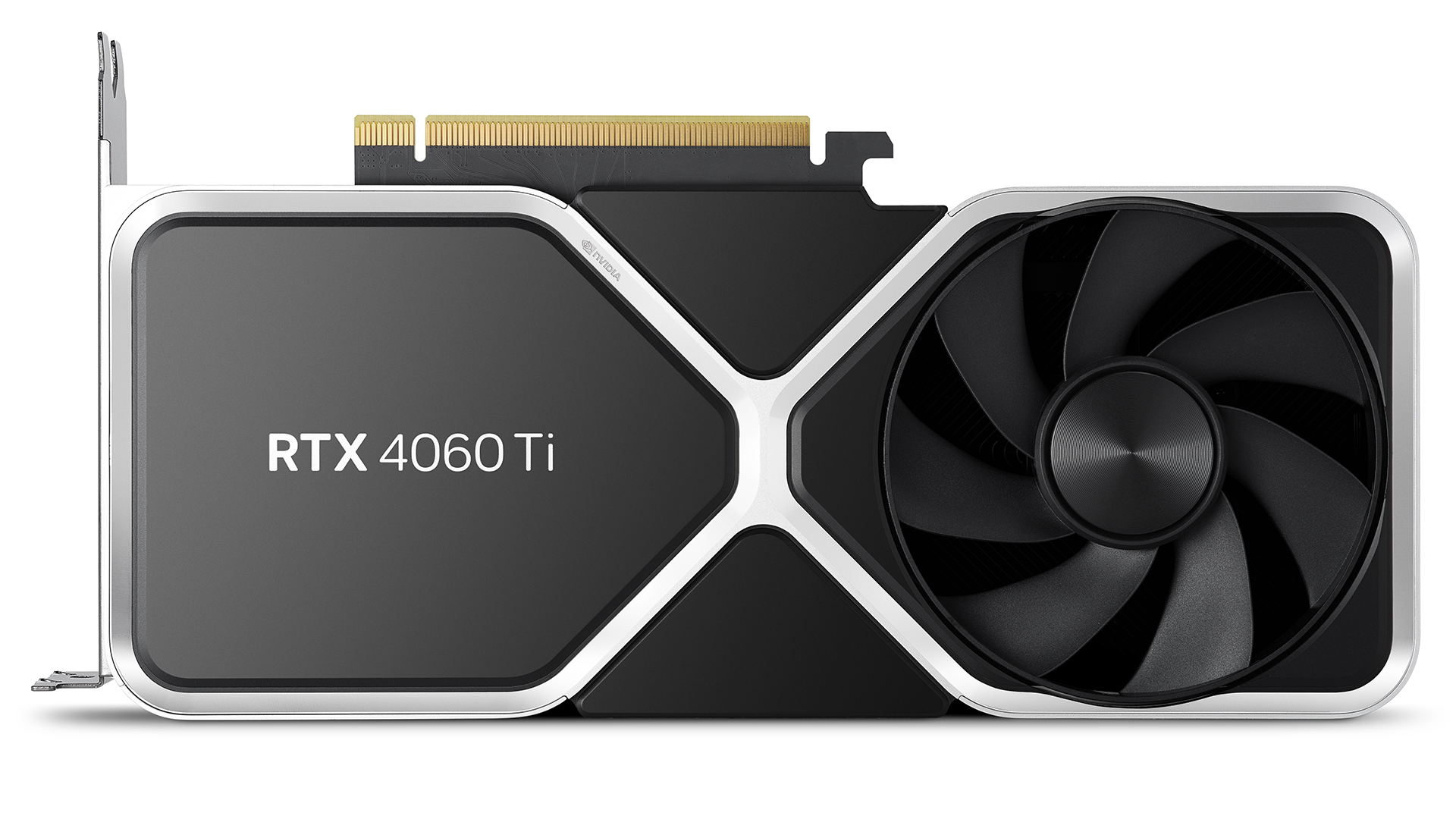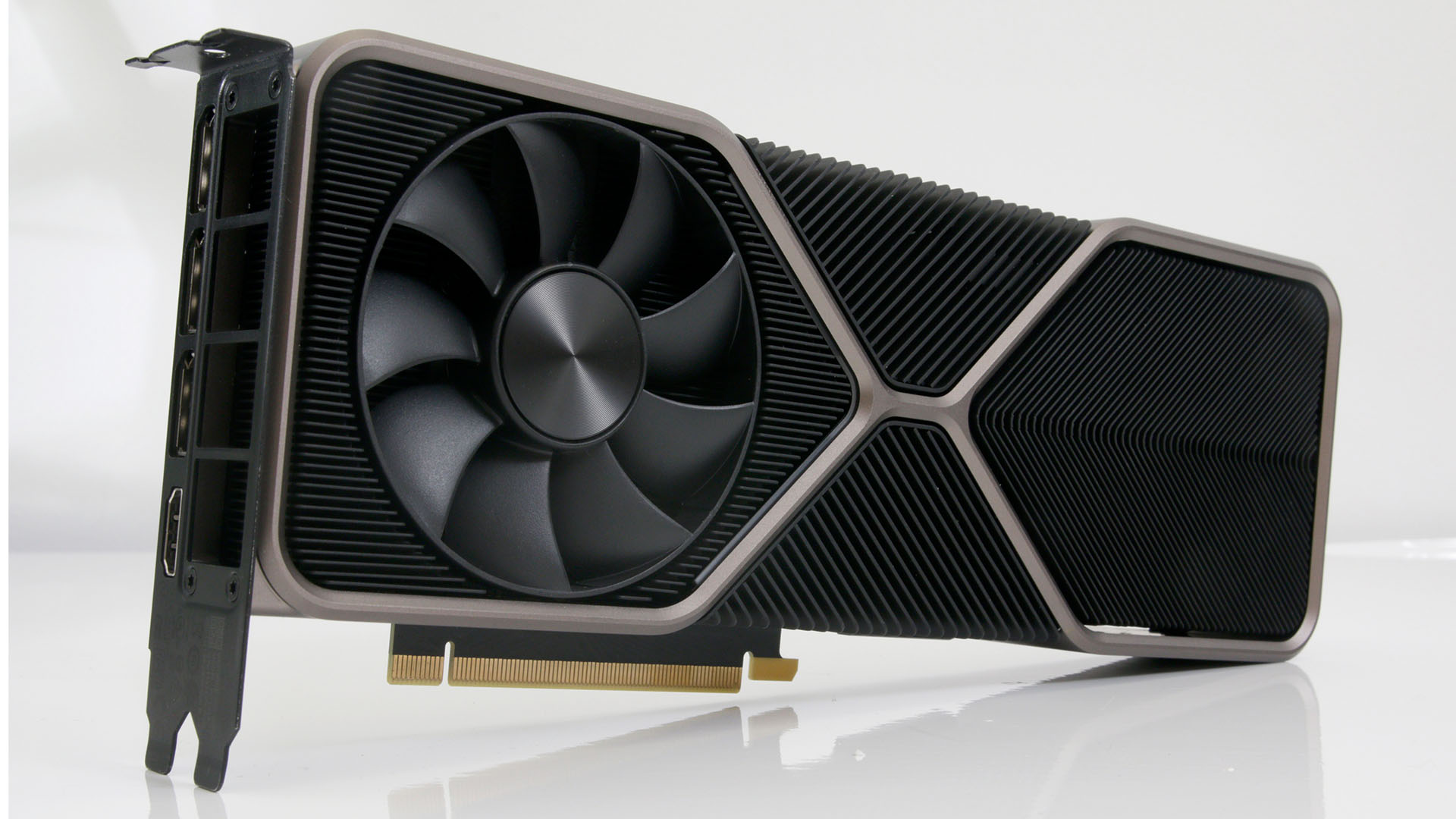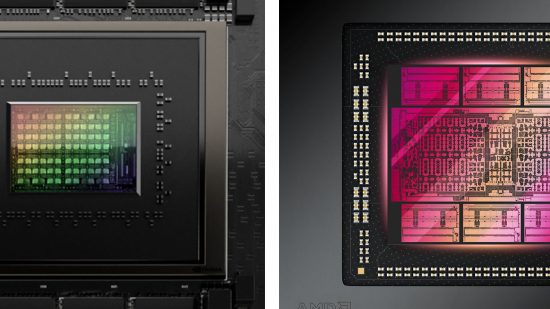Will AI increase AMD and Nvidia graphics card prices? It’s only been a few months since we started to see graphics card prices return to something approaching normal, following two years of inflated prices thanks to Covid-induced PC gaming mania and a boom in cryptocurrency mining.
With the launch of the Nvidia GeForce RTX 4070, we got a current-generation card that costs less than $600 while subsequent launches of the Nvidia GeForce RTX 4060 Ti and AMD Radeon RX 7600 have seen prices dip below $400 and $300 respectively.
However, that could all be about to change as recent hype over the potential for GPU-accelerated AI has sent AMD and Nvidia stock skyrocketing in recent weeks. With specialized devices for AI, such as Nvidia’s GH200 Grace Hopper chips, likely to see ever-increasing demand, it only makes sense that AMD and Nvidia would target those lucrative markets rather than cater to gamers.

Nvidia stock has leapt up in recent weeks and tripled in value since Oct 2022
The counterargument to this idea is that these are specialist chips, so won’t directly gobble up GPU supply, but nonetheless, there are several factors that could see prices rise.
The first is production allocation. For both AMD and Nvidia, it makes sense to prioritize their allocated production capacity at facilities like TSMC for use in making the most profitable products. Why scrap around trying to sell tens of thousands of low to mid-range GPUs to disgruntled gamers when you can produce specialist AI chips that sell for 100x as much?
Then there are the smaller-scale AI operators who won’t be in the market for super-expensive dedicated AI chips but will instead look to make the most of the Tensor cores and AI cores in Nvidia and AMD GPUs respectively. This increased demand for GPUs will leave little incentive for either company to lower prices, at least at the higher end of the market – it’s unlikely anyone seriously messing around with AI will hamper their progress by opting for a low-end card.
However, there are a couple of reasons to be hopeful. The first is that whatever ambitions either company has for AI, existing production plans will have long been in place and a shift in external enthusiasm for their products won’t immediately change either company’s plans. If GPU prices were ever going to return to pre-Covid levels, the product plans and pricing structures for that scenario should still be playing out.

What’s much more likely to change production plans are things like the apparent lack of enthusiasm for products such as the RTX 4060 Ti which has seen sales fall well below expectations according to some reports. Instead, the far better value is the AMD Radeon RX 7600, a situation we highlighted in our AMD Radeon RX 7600 vs Nvidia GeForce RTX 4060 Ti feature recently.
The other factor is simply that, by all accounts, demand for GPUs isn’t all that high at the moment. The final, killer blow for graphics card supplies during the pandemic was consumer demand from gamers. While crypto and production woes got much of the blame, people being stuck indoors also fueled a huge wave of new PC gamers looking to buy chips. It also coincided with the launch of significantly improved GPUs from both AMD and Nvidia, leading many buyers who had been holding off on upgrading to want to finally take the plunge.
All that has now changed. Owners of Ampere and RDNA 2 GPUs, such as the GeForce RTX 3080 and Radeon RX 6750 XT, are still happy with their cards, for the most part, and although there’s still plenty of demand for cheaper current-generation cards, the flood of secondhand cards or existing stock of older now discounted cards has satisfied many.

One final note of caution, though, is that while we don’t predict GPU stock to dry up and prices to suddenly start to rise again, we also don’t see prices falling meaningfully either. The price hikes of recent years proved many gamers were willing to spend ever more money if they had to. In just the same way that phones now regularly cost over $1,000 when only a few years ago $500 still seemed like a lot, in our recent RTX 4060 Ti review, it didn’t seem utterly ridiculous that a card that costs $400 was not much use for anything over 1080p gaming.
We can certainly envisage a near future where 1080p gaming requires a $300 minimum spend, $500 becomes the norm for 1440p and the sky’s the limit for 4K gamers. It’s certainly going to be a fascinating time when Nvidia finally drops the RTX 4060 Ti 16GB and we maybe, just maybe, see a few price drops elsewhere at the same time.
What has your take been on recent graphics card prices? Have you come to accept the new higher prices or are you still holding out for prices to drop?
Let us know your thoughts on the Custom PC Facebook page, via Twitter, or join our Custom PC and Gaming Setup Facebook group and tap into the knowledge of our 390,000+ members.
